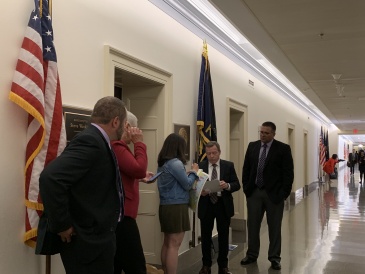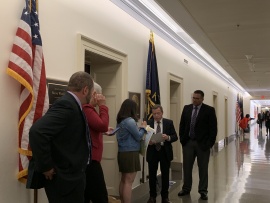Posted on April 30, 2019
Broadband Network Performance Testing, while fully supported and encouraged by rural telecoms, is not always consistent in information that it provides. For instance, a small provider with 500 customers is required to test the same number of customers as those who service a customer base of 50,000. Due to factors such as these, the data collected often produces an inaccurate representation of service performance with disproportionate results. Smaller Telecoms are asking that the Federal Communications Commission reevaluate these testing programs so as not to lose sight of their integral value.
Likewise, a better validation process is needed to ensure more accurate broadband mapping. Broadband maps provide data and information that aid in advancing efforts to close the digital divide in rural America. However, the most current map maintained by the FCC reflects entire census blocks as being serviced by broadband even if the service is offered to only one location within that census block. The result? Underserved homes, businesses, and farms who are unable to qualify for federally funded resources such as the ReConnect Grant, which is available through the USDA.
“Broadband network performance testing and mapping are two issues that go hand-in-hand. Accurate performance testing drives the accuracy of the maps and is critical to ensure those who are underserved can have access to appropriate resources and grants,” said Smith. “We think Congress has a role to play in encouraging the FCC to act.”
Smith & Simmer were in Washington to participate in NTCA–The Rural Broadband Association’s Legislative & Policy Conference, April 15–16. Nearly 500 rural telecom representatives from all over the country gathered in the nation’s capital for educational briefings about emerging rules and regulations and other industry issues.


